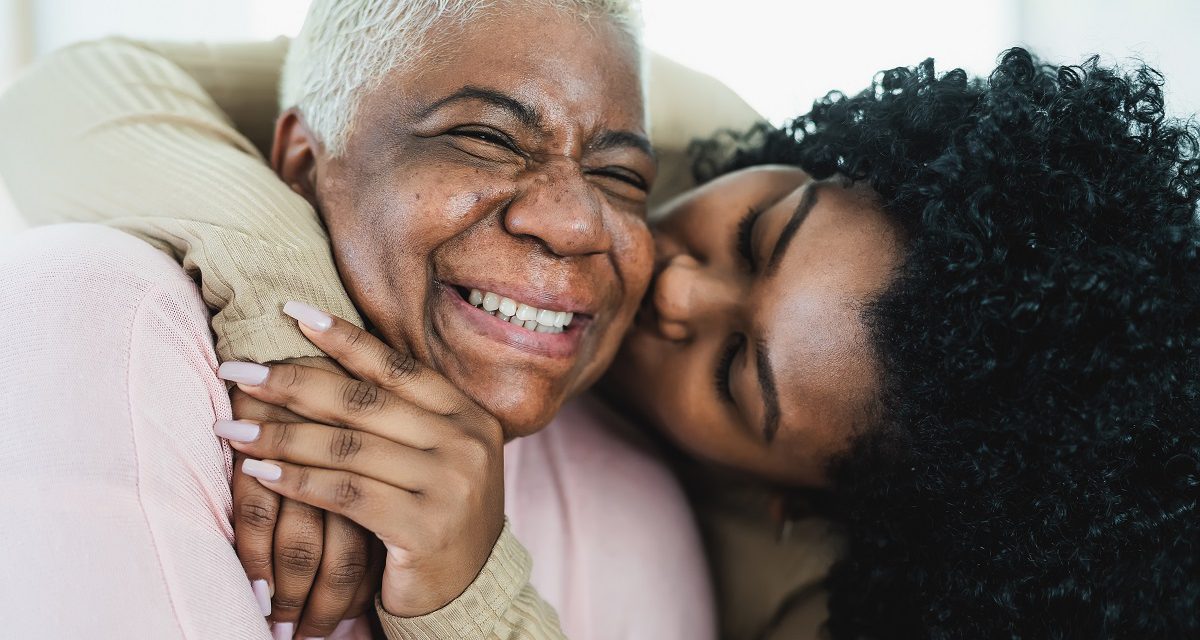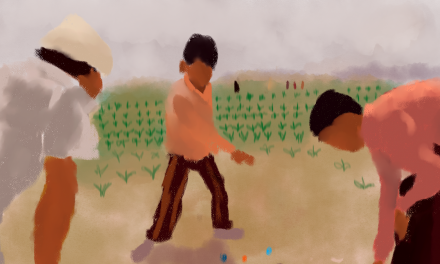A breakout session during the Missouri Rural Health Association (MRHA) Get Link’d 2021 Conference highlighted the unique challenges faced by those living with dementia and their caregivers. “Community Supports for People Impacted by Dementia” provided an in-depth look at dementia and Alzheimer’s across Missouri and the assistance available to help caregivers bear the weight of dementia-related changes. The session was moderated by MRHA mobility management coordinator Sandra Morris, and featured presenters Amy Sobrino from Memory Care Home Solutions (MCHS) and Ben Molina from the Alzheimer’s Association (AA) Greater Missouri Chapter.
Amy Sobrino, MSW, LCSW, started with MCHS in 2014 as a graduate practicum intern providing education to caregivers. After earning her Master of Social Work degree from St. Louis University, she is now a social worker at MCHS providing customized training and support to people with dementia, their loved ones, and their caregivers. She and her family also operate Effingham Area Alzheimer’s Awareness, a not-for-profit organization in central Illinois providing education and support for families, caregivers, and people affected by Alzheimer’s and dementia.
Ben Molina, MSW, earned his Masters of Social Work degree from Washington University in St. Louis. He now serves as client services manager for AA Greater Missouri Chapter, providing confidential support and information to people living with dementia, caregivers, and the public.
What is the difference between Alzheimer’s and dementia?
Molina began the presentation by posing a true or false statement to the virtual audience: Alzheimer’s is a normal part of aging. “I chose to ask this because it is one of the most common myths surrounding Alzheimer’s disease today,” he said, noting the mixed poll results.
Dementia is an umbrella term that describes a group of symptoms associated with a decline in memory, reasoning, and other skills. This can also include a decline in someone’s ability to function in day-to-day life. There are many different types of dementia, as well as many conditions that cause it, including Alzheimer’s.
Alzheimer’s is a progressive brain disease with unique structures thought to damage and kill nerve cells. “While these topics are related, there are important differences between the two,” Molina said. “Alzheimer’s is actually one of the most common causes of dementia. It accounts for approximately 60-80% of all dementia cases.”
AA compiled a list of warning signs to identify the differences between normal aging and possible signs of dementia. While this list can be helpful for families with seniors, it is not intended to assess or diagnose. Warning signs of dementia and Alzheimer’s include:
- Memory loss that disrupts daily life.
- Challenges in planning or solving problems such as managing finances or paying bills when they’ve never previously had an issue.
- Difficulty completing familiar tasks or using items such as phones, remote controls, or even microwaves.
- Confusion with time and place, such as forgetting appointments they normally wouldn’t.
- Trouble understanding visual images and spatial relationships.
- New problems with words in speaking or writing.
- Misplacing things and losing the ability to retrace steps.
- Decreased or poor judgement.
- Withdrawal from work or social activities.
- Changes in mood or personality.
“It’s not necessary for a person to experience all of these warning signs for us to be concerned,” Molina said. “A person may experience one or more and in varying degrees. When we do experience these warning signs in ourselves or someone we know, it’s important to encourage them to begin that conversation with their doctor.”
“An early diagnosis of Alzheimer’s and dementia is extremely important because it can open a range of benefits for that individual,” Molina continued. “These benefits include access to treatment options, opportunity to participate in clinical trials, opportunity to prioritize their health, and more time to plan for the future.”
Dementia in Missouri
“We know that Alzheimer’s disease and other dementias are impacting families here in Missouri,” Molina said. As of 2020, over 100,000 individuals over age 65 in Missouri are living with Alzheimer’s or other forms of dementia. This number is expected to increase to an estimated 130,000 within the next five years.
Alzheimer’s is the sixth leading cause of death. The disease directly impacts the number of hospitalizations and ER visits we see and raises the cost of Medicaid. Data from 2018 showed 1,530 emergency department visits per 1,000 people with dementia. Dementia patients also saw a hospital readmission rate of 22.6%. In 2020, the Medicaid costs of caring for people with Alzheimer’s grew to $973 million – a number expected to increase 16.8% by 2025.
Possibly most affected are the 194,000 caregivers – usually a family member, friend, or close acquaintance who unknowingly take on the emotional and financial burdens associated with dementia. To keep up with around-the-clock care, caregivers may sacrifice hours at work, opportunities for traveling positions, and even promotions.
In 2020, Missouri caregivers provided over 292 million hours of unpaid care, despite 64.1% having chronic health conditions of their own. “Many caregivers do it out of the goodness of their hearts and some are just put in that position,” Molina said.
The Cost of Caregiving
The shifting of roles and responsibilities experienced when becoming a caregiver can be daunting. “A lot of us are thrown into the caregiver role,” Sobrino said. “I think this is one of the most challenging aspects of caregiving, because the dynamics and function you’ve always been used to starts to change. That’s a very challenging adjustment.”
Sobrino began her caregiving journey assisting her grandmother who lived with dementia for nearly 13 years. Her personal experience shifting from granddaughter to caregiver deepened her understanding of the aging process and continuum of care, and made her an advocate for residents in long-term care communities.
“None of us are really prepared for caregiving and there’s no manual or training for it. As a result, the chronic stress and health consequences hit caregivers by surprise,” she said. Sobrino works with many clients who don’t realize their lack of sleep or various physical and mental health issues are a response to chronic stress.
However, there are positive aspects to caregiving worth noting. Improving and strengthening relationships, as well as building connections among the whole care team in general, is common and often beneficial. “Many people report that having that meaning and purpose — being able to give back and support someone during a challenging time — is very important to caregivers,” Sobrino said.
She told a story about a previous client who was estranged from his siblings throughout his life. Now, through caring for their mother together, they’ve individually improved their relationships with her as well as each other.
Rural Barriers to Dementia Care
Growing up in rural Illinois, Sobrino experienced firsthand the barriers in place when seeking a dementia diagnosis. Common barriers in rural areas include:
- Fewer geriatric or neurology specialists.
- Fewer available supports and services.
- Transportation.
- Strong values of independence, self-sufficient attitude, and privacy.
- Prevalence and attitude surrounding firearms.
The lack of accessible, affordable transportation in rural areas often means people are driving long distances to see providers or choosing to wait until a clinic day occurs. “It can be very challenging to see a specialist and as a result, many people go undiagnosed – or misdiagnosed,” Sobrino said. “They try to manage it with their existing health care team and aren’t getting the specialized care they need.”
Attitudes about independence, self-sufficiency, home protection, and more may also require challenging conversations. While remaining independent is a priority for both those affected by dementia and their caregivers, the reality of the cognitive decline must be addressed. “There was extra care we had to take to make sure my grandma was safe and wouldn’t be potentially hurt by big equipment, tools, or being lost in the chaos,” Sobrino said. “It can be very challenging to manage someone living with dementia if they’re still farming and operating big machinery. It can be a huge risk.”
As memory and facial recognition decline, homeowners may mistake family and friends entering the home for an intruder, posing another potentially fatal threat. “Prevalence and attitude of firearms can make it challenging to have the discussion. How are we practicing good gun safety?” she said. “I’ve seen this over and over and over again – and sometimes more deadly than others.”
Caregiver Training and Relief
Conversations surrounding the inevitable changes that accompany Alzheimer’s and dementia are emotional, uncomfortable, and can be overwhelming, especially for those new to providing care. MRHA, MCHS, and AA Greater Missouri Chapter have partnered to deliver the Customized Caregiver Training and Relief Program (CCTRP) to Missouri residents impacted by dementia and their caregivers. The program, funded through the Department of Health and Senior Services, offers training and relief services to help ease this transition for everyone involved.
The program is split between two tracks depending on patient needs: caregiver training and caregiver relief. The Caregiver Training Program offered by MCHS providers a customized blueprint for care, caregiver training, and support resources. The Caregiver Relief Program offered by AA provides financial reimbursement for dementia-related care costs. Both tracks take a patient-centered approach, allowing the person living with dementia, their caregiver, and their support team to determine their needs and lead their care journey.
According to Sobrino, the Caregiver Training Program isn’t a one-size-fits-all. “We ask, ‘How are we customizing this to meet the client and family’s needs?’ It’s very focused on each individual’s priorities and how we can help answer their questions and build a plan that they’re leading,” she said.
The training track focuses on extending and improving the patient’s quality time at home. Caregivers are taught how to set their loved ones up for success, from helping keep a structured routine to adapting the home environment to address safety risks. The goals of the Caregiver Training Program are to:
- Provide client and family centered care.
- Create a safe and dementia-friendly environment at home.
- Improve activities of daily living (ADL) and reduce behavioral and psychological symptoms.
- Reduce caregiver stress, improve their understanding and ability to manage the disease, and be a support for them.
- Keep families together to reduce or delay nursing home placement.
Families interested in the Caregiver Training Program begin with an initial consultation with an MCHS social worker at 314.645.6247 to discuss concerns, priorities, and questions and to cover general dementia education. Following this consultation, families have the option to continue with phone check-ins at three, six, and 12 month intervals, or to have occupational therapy and social work visits.
In-person visits focus on hands-on training for home modifications and help adjusting daily routines. Families direct the type of help they need and can reach out for support as needed. Social workers also discuss the grief of loss associated with dementia-related diseases and the emotional aspect of seeing someone you love and care for continue to decline.
Eligibility for the Caregiver Training Program:
- People with suspected OR confirmed cognitive impairment (no official diagnosis required).
- AND an informal care partner who is willing to be part of the program.
- Physician approval for occupational therapy plan of care required (if applicable).
The Caregiver Relief Program offered by AA Greater Missouri Chapter providers financial relief for dementia-related care costs. Through the program, they provide a small grant up to $700 per year so caregivers can hire someone to come into the home, either through an agency or by choosing someone they know and trust. This relief can be used for in-home care, adult day care, home safety equipment, nutritional supplements, and other approved costs.
“This is a reimbursement program, so caregivers are able to choose which services they wish to use or products they wish to purchase, save receipts once they’re enrolled in the program, and we reimburse them for the cost,” Molina said.
Families interested in the Caregiver Relief Program begin with a care consultation with AA Greater Missouri Chapter through their 24/7 help line (800.272.3900). Consultations include a one-on-one appointment with a master level clinician to have a conversation about concerns and needs and answer questions. Clinicians provide families with an individualized action plan to address current and future needs as well as connections to community resources and educational or support programs.
The 24/7 help line is also available to anyone, anytime, with Alzheimer’s and dementia-related questions. “A caregiver can call at four in the morning because mom is awake and they can’t get her back to bed. We’ll help them through that,” Molina said.
Qualifications to enroll in the Caregiver Relief Program:
- Must reside in Missouri and live at home with their primary caregiver.
- Caregivers must start using funds within 45 days of enrollment.
- All funds must be used before May 1, 2022. A care consultant will help plan out how they will use the funds.
- Grants are capped at $700, are subject to availability, and issued on a first come first serve basis.
AA Greater Missouri Chapter can also work directly with families. Providers can refer families using the Direct Connect Rapid Referral form. The form can be returned via fax or completed and submitted via a secure online form. Once received, providers will reach out to families within two business days.
Start Receiving Help Today
Getting help to navigate the changes of dementia is crucial. To offer the best care, we need our loved ones to feel like we are on their team and working with them, not fighting against them. “Dementia is a public health crisis,” Sobrino said. “We can’t change the people with dementia, but we can change our approach as caregivers, the home environment, and the task or activity. It’s almost like learning a new language.”
To learn more about each track offered within the CCTRP and receive help enrolling, visit MRHAssociation.org/caregivers.








